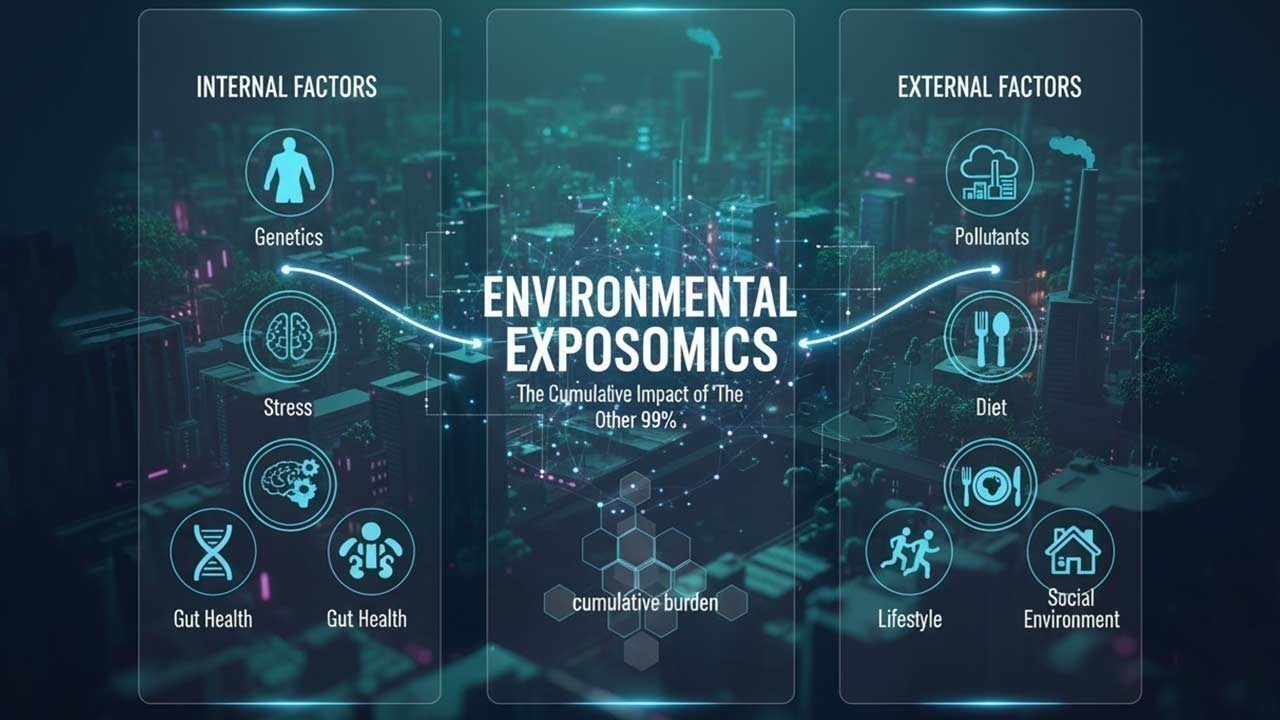
Post by : Mukesh Kumar
When we think about staying healthy, we often focus on eating nutritious food, exercising, or visiting a doctor when needed. But there is another factor that quietly influences our health every day—our environment. The air we breathe, the water we drink, the food we eat, and even the sounds and stress around us all play a role in how our body functions. This is where the fascinating field of environmental exposomics comes in.
Environmental exposomics is the study of everything we are exposed to in our daily lives. It looks at how these exposures—like air, water, food, chemicals, sunlight, stress, and even social surroundings—affect our bodies over time. Just like our genes tell a story about our DNA, exposomics reveals the hidden story of our environment and its impact on our health.
Think of environmental exposomics as a detective story. Scientists act like detectives trying to understand the “exposome”—the complete record of all the exposures a person experiences from birth to adulthood. These exposures include:
Air quality – Breathing clean air versus polluted air filled with smoke, dust, or chemicals.
Water and food – What we eat and drink, including possible toxins or harmful substances.
Chemicals and toxins – Substances found in plastics, cleaning products, pesticides, and other household items.
Lifestyle exposures – Stress, noise, sunlight, and even lack of sleep.
By carefully studying these factors, scientists can connect the dots between the environment and human health. This research helps answer questions like: Why do some people stay healthy while others get sick even in the same city? Why are some children more likely to have asthma or allergies?
Health is not determined by genes alone. The environment we live in has a big influence on our well-being. Long-term exposure to harmful surroundings can contribute to many chronic illnesses, such as asthma, diabetes, obesity, heart problems, and certain types of cancer.
Some examples include:
Children living near busy roads or factories may develop breathing difficulties due to air pollution.
Drinking water that contains chemicals or heavy metals can damage the liver, kidneys, or other organs.
Constant noise or stress from city life or workplaces can harm mental health and increase anxiety.
Environmental exposomics helps us see these hidden risks clearly. It shows how everyday surroundings can shape our health over time and why two people in the same environment may experience very different health outcomes.
Studying the exposome is not easy because exposures change constantly. Unlike our DNA, which remains the same, the environment affects us differently every day. Scientists now use modern tools to study and measure these exposures:
Wearable Sensors – Small devices that track pollution, noise, sunlight, and even how our body responds in real time.
Biological Tests – Blood, urine, or saliva tests that detect chemicals, toxins, and other substances in the body.
Data Analysis and Artificial Intelligence – Computers analyze large amounts of environmental and health data to identify hidden patterns.
By combining these tools, researchers can create an “environmental fingerprint” for each person. This fingerprint helps predict potential health risks before they become serious problems.
Environmental exposomics is not just research—it has real-life benefits:
Improved Healthcare – Doctors can identify potential health risks early by looking at both a person’s genes and environmental exposures. This leads to faster, more accurate treatment.
Safer Cities – Governments can use exposomics research to reduce pollution, plan green spaces, and make cities healthier for everyone.
Better Lifestyle Choices – Families can make informed decisions about food, water, and living areas to minimize health risks.
In simple words, exposomics gives us the knowledge to protect our health and live better lives.
Although this field is still growing, the future of exposomics looks very promising. Scientists believe it could transform medicine and public health by combining genetics with environmental history.
In the near future, we might see:
Hospitals checking both DNA and environmental exposures to suggest the best treatments.
Cities designed using “health maps” that show areas with cleaner air, water, and safer surroundings.
Apps that help families track their own environmental exposures and reduce health risks.
By focusing on both genetics and environment, exposomics could help prevent diseases rather than only treating them.
Environmental exposomics shines a light on the invisible factors around us that silently shape our health every day—air, water, chemicals, stress, and more. Understanding these exposures can help us take better care of ourselves, protect our families, and build healthier communities.
While our genes tell part of our story, our environment writes the rest. With exposomics, we are learning how to create a world where future generations can breathe clean air, drink safe water, and enjoy better health.
The information in this article by DXB News Network is provided for educational purposes only. It is not a substitute for professional medical or scientific advice. Readers are encouraged to consult qualified experts before making any health or lifestyle changes.

How to Start a Business in 2025: Easy Step-by-Step Guide
Kickstart your entrepreneurial journey in 2025! Learn how to start a business with this easy step-by

Fibermaxxing: The New Nutrition Trend That Really Works
Discover Fibermaxxing, the latest nutrition trend boosting digestion, gut health, and overall wellne

Understanding Anxiety Disorders: Simple Guide to Causes, Symptoms, and Treatment
Learn about anxiety disorders in simple words. Discover causes, symptoms & treatments to manage ment
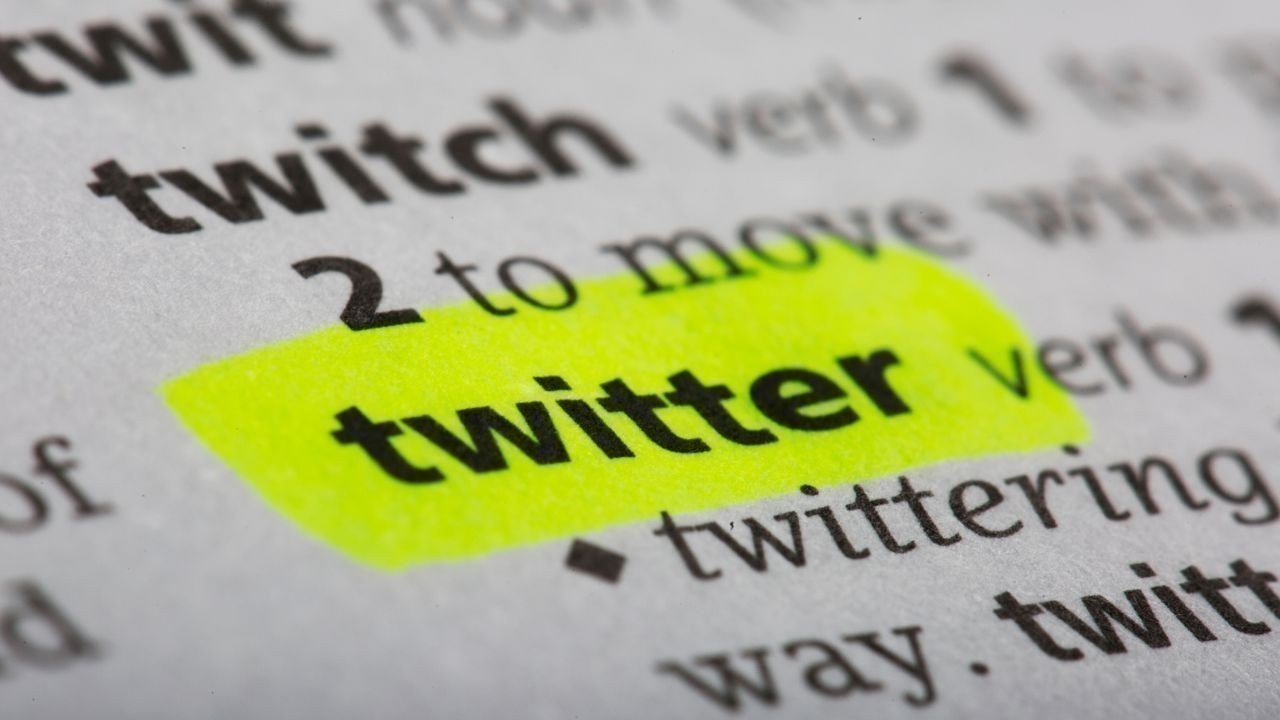
Bluesky Explained: What You Need to Know About the New X (Twitter) Alternative
Bluesky is the new social app competing with X (Twitter). Discover its features, how it works, and w

Saudi Minister Meets Chinese Firms on Mining Deals
Saudi Minister Bandar Alkhorayef meets Chinese mining firms in Beijing to boost investments in the K

UAE Pavilion Debuts at Hangzhou Digital Trade Expo
UAE showcases digital economy innovations at Hangzhou Global Digital Trade Expo, strengthening China

Dubai Ranked Top 4 Global FinTech Hub in 2025
Dubai secures a top-four global FinTech ranking as DIFC hosts 1,500+ innovation firms, raising $4.2B

Fashion and Neuroscience How Clothing Shapes the Brain Emotions and Confidence
Discover how fashion and neuroscience connect Learn how clothing colors and style influence mood

Yoga for Kids Simple Poses and Healthy Habits for Young Minds
Discover easy yoga poses for kids to build healthy habits improve focus and boost physical and emo
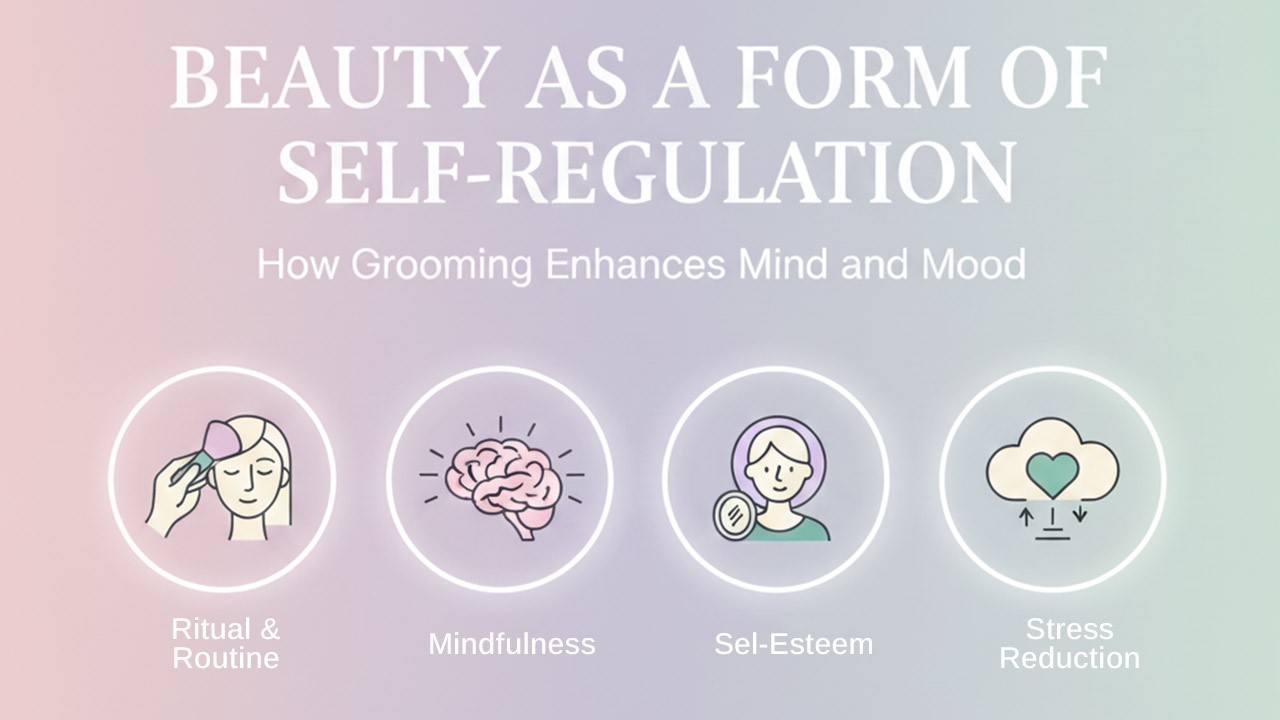
Beauty as Self Regulation How Daily Grooming Boosts Mind Mood & Confidence
Discover how daily beauty and grooming routines help boost confidence calm the mind and improve em
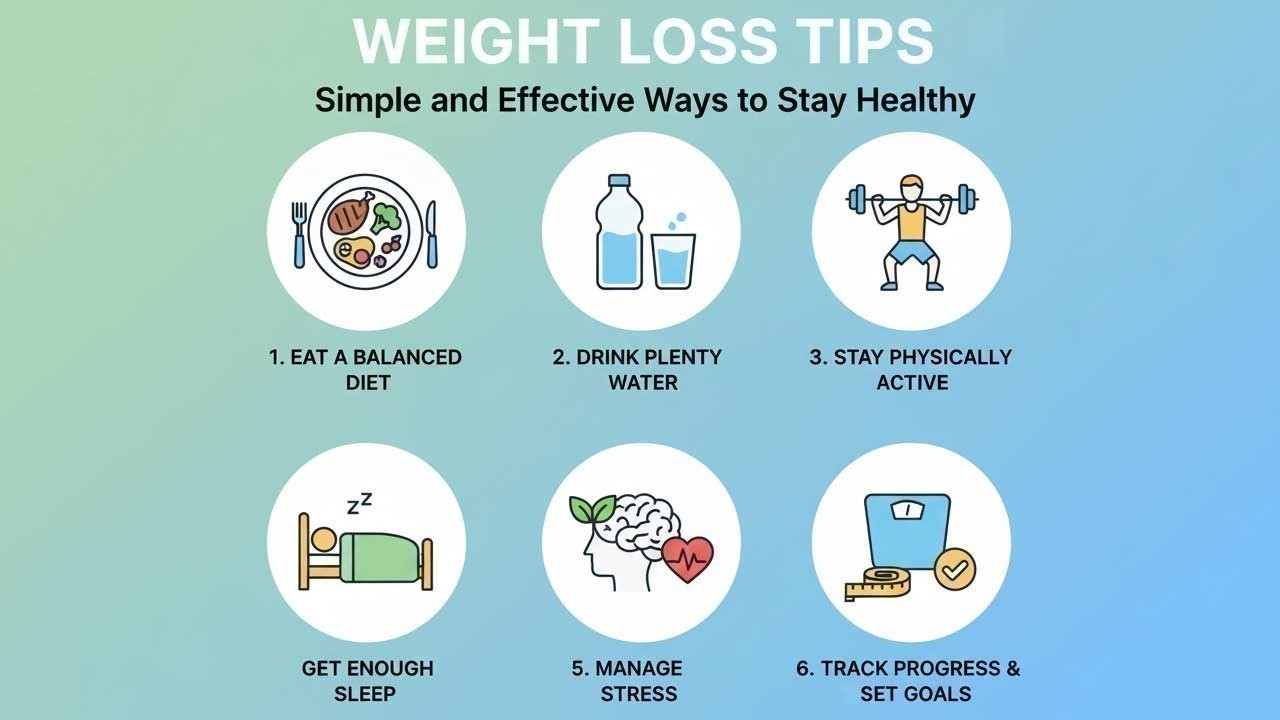
Weight Loss Tips Simple Effective & Healthy Ways to Lose Weight
Discover simple and effective weight loss tips to stay healthy boost energy and maintain a balance

Environmental Exposomics How Daily Environmental Factors Affect Our Health
Discover how environmental exposomics reveals hidden daily exposures affecting our health lifestyle
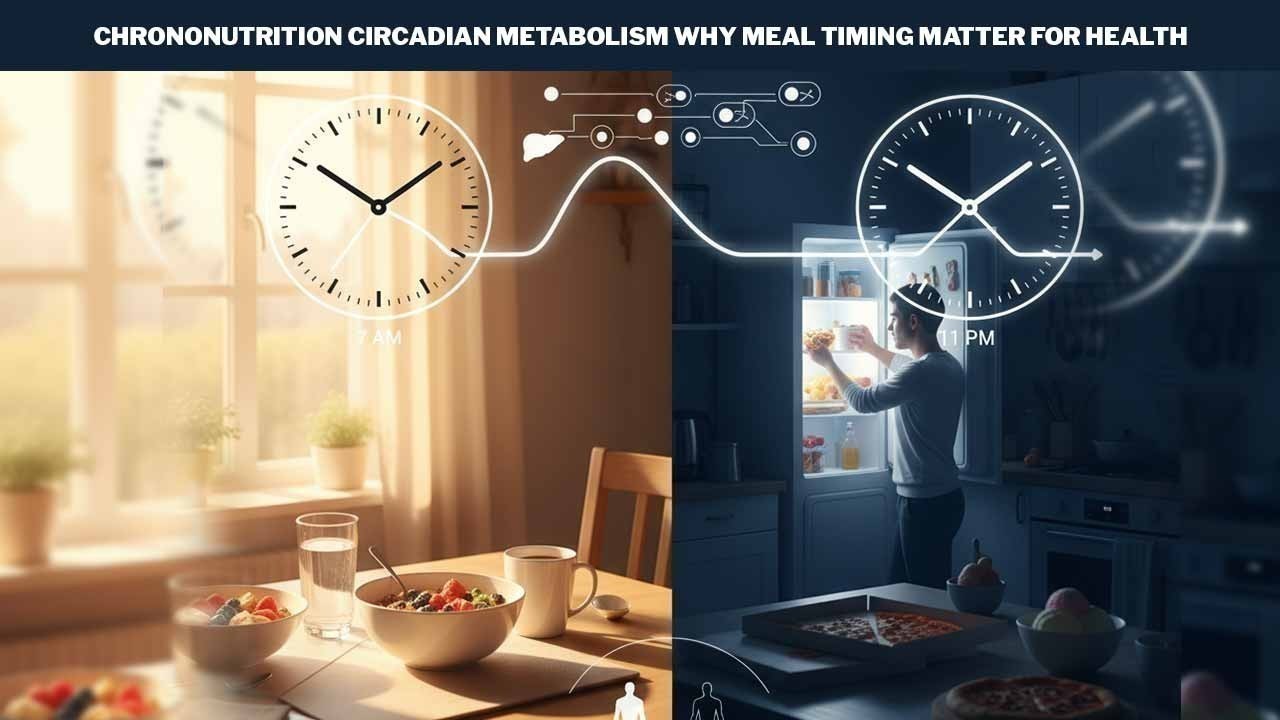
Chrononutrition and Circadian Metabolism Why Meal Timing Shapes Better Health
Discover how chrononutrition and circadian metabolism improve digestion sleep energy and health b

The 5 Most Beautiful Jewels of Princess Diana Symbols of Love Style and Legacy
Explore Princess Diana s 5 most beautiful jewels from her sapphire ring to iconic tiaras each telli
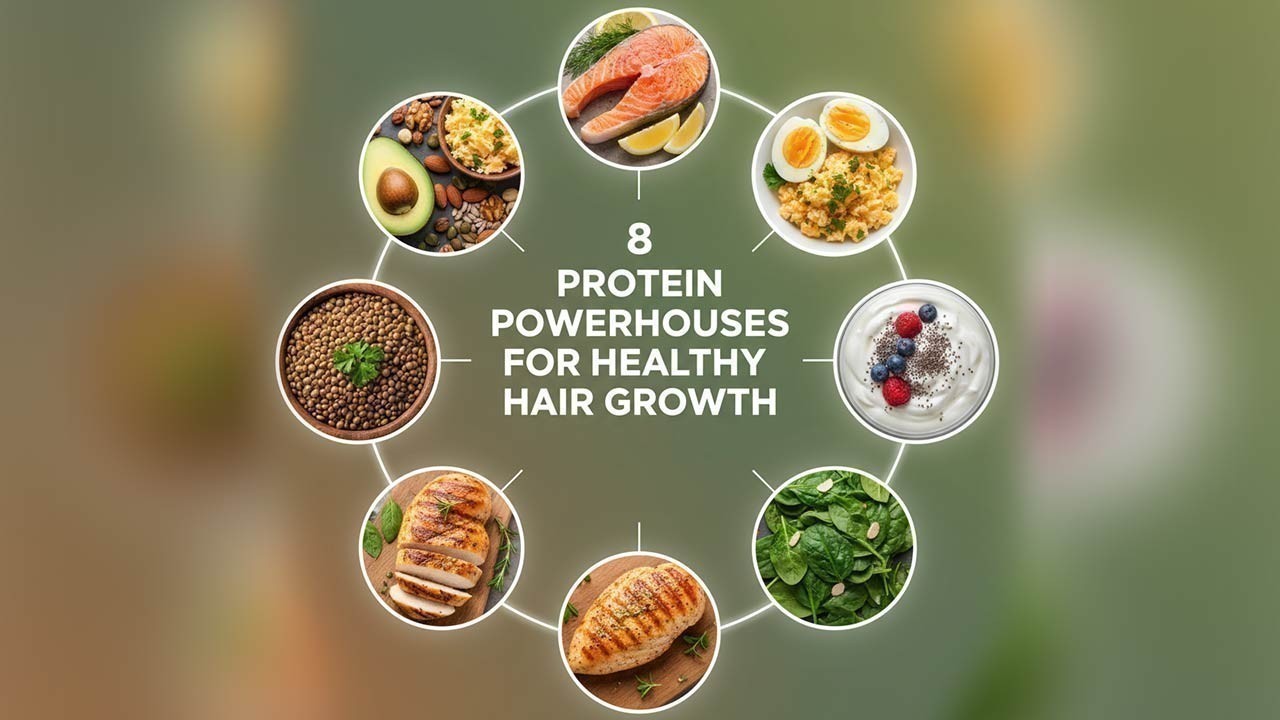
8 Protein Powerhouses for Healthy Hair Growth Strong Shiny Hair Naturally
Boost hair growth naturally with 8 protein rich foods like eggs fish nuts and quinoa for stronger